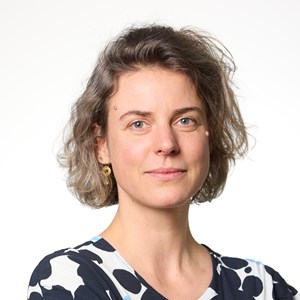The twin green and digital transitions open new opportunities for the European industry and citizens, in a quickly changing global scenario. But does Europe have what it takes? How can we make sure that it has the skills and the workforce to remain competitive in the global economy? And what is the role of standardization?
On the occasion of the European Year of Skills, we are conducting a special campaign: through a series of interview with young standardization professionals, experts and business leaders coming from a variety of background, throughout the year we will explore the interaction between innovation, skills and standardization in some of the most relevant sectors for Europe’s long-term competitiveness.
For the fourth episode of this interview series, we interviewed Jovana Nikolić, from Serbia, about her experience as a young standardizer.
1. Please, present yourself. To what extent are you involved in standardization?
My name is Jovana, I am 31 years old, and I am from Serbia. I hold a master’s degree in economics from the Faculty of Economics at the University of Kragujevac, where I also obtained my bachelor’s. I am currently pursuing a PhD at the Faculty of Engineering. At the same time, in recent years I have been employed in the private sector.
I have been involved in standardization through a combination of education, career opportunities, and a genuine interest in the field. In one of my previous workplaces, I was trained for the first time to be involved in the implementation of some ISO standards, but I did not have much information about ISO and the development of international standards in details.
Then, ISS, the Institute for Standardization of Serbia, nominated me as the Serbian representative in ISINEG. ISINEG is the International Standard Institute of the Next Generation: it brings together students from all over the world to introduce them into the world of standards. Many students from different countries attend these workshops and establish different Student Technical Committees.
At present, the first student Technical Committee (TC), ISINEG/TC 1 Climate Change, is the most active one. The secretariat of this TC is held by ISS. I was nominated as its Committee manager, while another student from Argentina was appointed Chair. We created 13 Working Groups and students from 13 countries were appointed as their convenors.
In addition of being Committee manager of TC 1 Climate Change, I am also Convenor of its Working Group 6 ‘Food Waste Management’. The members of the TC 1 have proposed eight New Work Item Proposals: two projects out of these eight were developed as Student Standards through a process which is inspired by the one used at the ISO/IEC level, while work on the other six is currently still ongoing. All activities have been conducted under the supervision of Mojdeh Rowsha Tabari, the past Chair of ISO Committee on Developing Country Matters (DEVCO), and the founder of this Institute.
2. You are currently a PhD Student. Can you explain a bit what you are working on and if, and how, standardization interacts with your research subject?
I am pursuing my PhD in Industrial Engineering and Engineering Management. I already conducted extensive research in the field of Lean and its tools, and how process optimization affects the improvement of a company's operations.
Now, my research focuses on the knowledge competence of quality managers and quality employees in Industry 4.0. One of the key aspects of my work involves examining the intersection between this type of competences and the process of standardization. Also, I have several papers published and presented at conferences on the topic of quality and business excellence.
3. 2023 is the European year of skills. What specific skills for your present and future career do you think working in standardization has provided you with?
Firstly, participation in ISINEG activities has allowed me to significantly improve my skills. In addition of increasing my knowledge about standards and standardization, I have been able to improve my knowledge and skills by chairing international meetings, as I had the opportunity to chair three Student Working Group meetings successfully, and develop one student standard related to the requirement for Food Waste Management. I also learned how to hold discussions and negotiate during meetings.
Secondly, working in the private sector, a robust knowledge base is fundamental, as it ensures familiarity with the relevant field and allows to keep standards current to meet stakeholder needs.
In summary, I feel working in standardization has enriched my skill set, making me a more versatile and adaptable professional.
4. Serbia, your country, is the youngest CEN and CENELEC member. In your opinion, what are the benefits for Serbia, and for Serbian companies, to participate into European and international standardization?
Engaging in European and international standardization brings a lot of advantages to Serbia: expanded market access, improved competitiveness, innovation opportunities, risk reduction, regulatory alignment, international recognition, collaboration, and contribution to national development. This participation serves as a catalyst for Serbia’s economic growth and the integration of Serbian companies into the global marketplace.
Also, the involvement in European and international standardization provides Serbian companies with insights into the latest industry trends and technological advancements. This exposure fosters innovation and helps businesses stay at the forefront of their respective sectors.
5. Do you think standardization has a role to play to address big challenges, such as the digital transition and climate change?
Standardization plays a pivotal role in addressing critical challenges such as the digital transition and climate change. For instance, with regards to digitalization, it ensures interoperability and cybersecurity in the digital realm, setting the foundation for technological innovation, data privacy, and efficient energy use.
Furthermore, in combating climate change, standards drive energy efficiency, facilitate the integration of renewable energy sources, and provide guidelines for environmental impact assessments and carbon emissions reduction.
As society increasingly relies on digital technologies and grapples with environmental concerns, standardization remains an indispensable tool in fostering sustainability, security, and progress.
6. Based on your experience, what is the added value of participating in standardization? And why should your fellow students and young professionals join you?
Student initiatives in standardization serve as an invaluable hub for ongoing education, fostering meaningful connections among individuals engaged in diverse aspects of the standards domain. This has definitely been my experience at ISINEG: it has been an incredible opportunity for me to learn and grow both professionally and personally.
Participating to standardization work also provides an excellent opportunity to enhance one's understanding of standards adoption and application methodologies. Furthermore, this platform offers an ideal avenue for staying abreast of global trends within the standards arena and the standardization process at large.
For this reason, I believe being involved in standardization activities has a lot of advantages for young people. In addition of learning about standards and standardization, they can learn how to chair an international meeting, and vital negotiation skills. But also, they can also make very good friends from different countries, and it gives them a good opportunity to be familiar with different cultures.
7. What should be done to improve the participation of young people in standardization?
Allow me to take my experience at ISINEG as an example. Although the number of students who are joining us is increasing day by day, we still need more students to join the standardization work: at present we have 13 students from 13 countries as Convenor of Working Groups and many other students as members of ISINEG/TC 1 Climate change, but they are not enough for development of many standards that are needed related to Climate Change.
To engage them effectively, it is essential to raise awareness about the significance of standardization, integrate it into education, offer training and mentorship programs, establish dedicated youth forums, facilitate networking opportunities, recognize their contributions, and utilize digital platforms for engagement. Young professionals should be inspired to see their role in standardization as an avenue for innovation and positive impact on business and society.
This article is part of our special series dedicated to the European Year of Skills: through a series of articles and interviews with standardization professionals, experts and business leaders coming from a variety of background, throughout the year we will explore the interaction between innovation, skills and standardization in some of the most relevant sectors for Europe’s long-term competitiveness. You can read the other articles related to the campaign here.

Giovanni COLLOT
gcollot@cencenelec.eu



